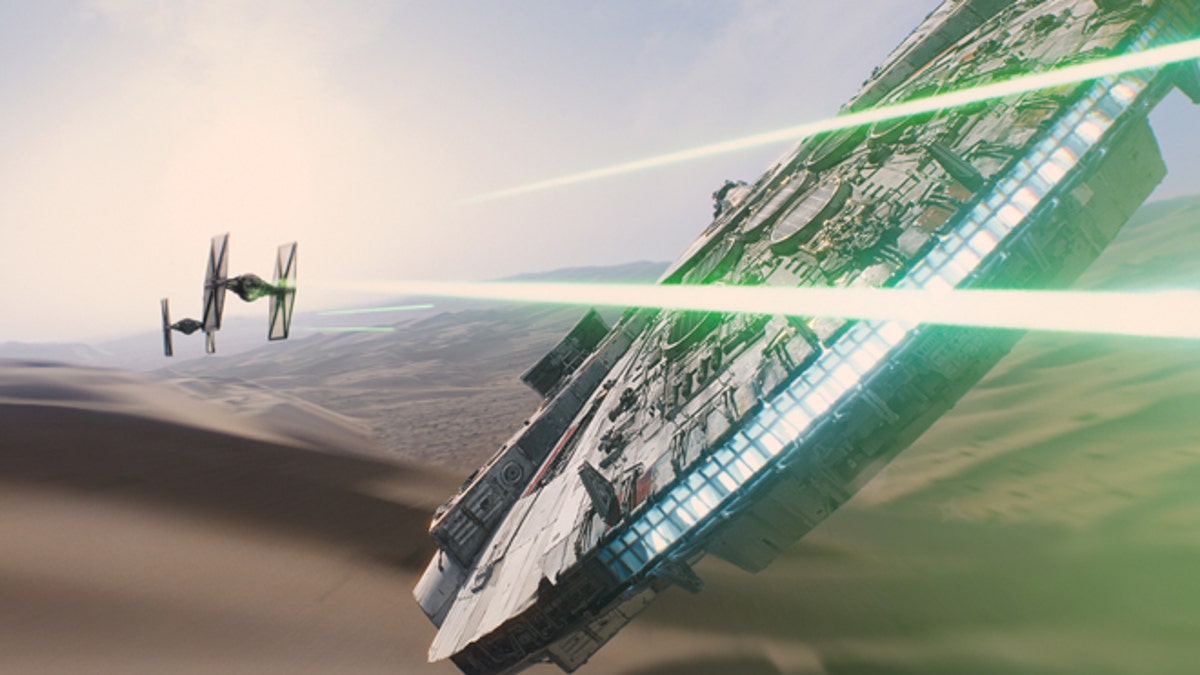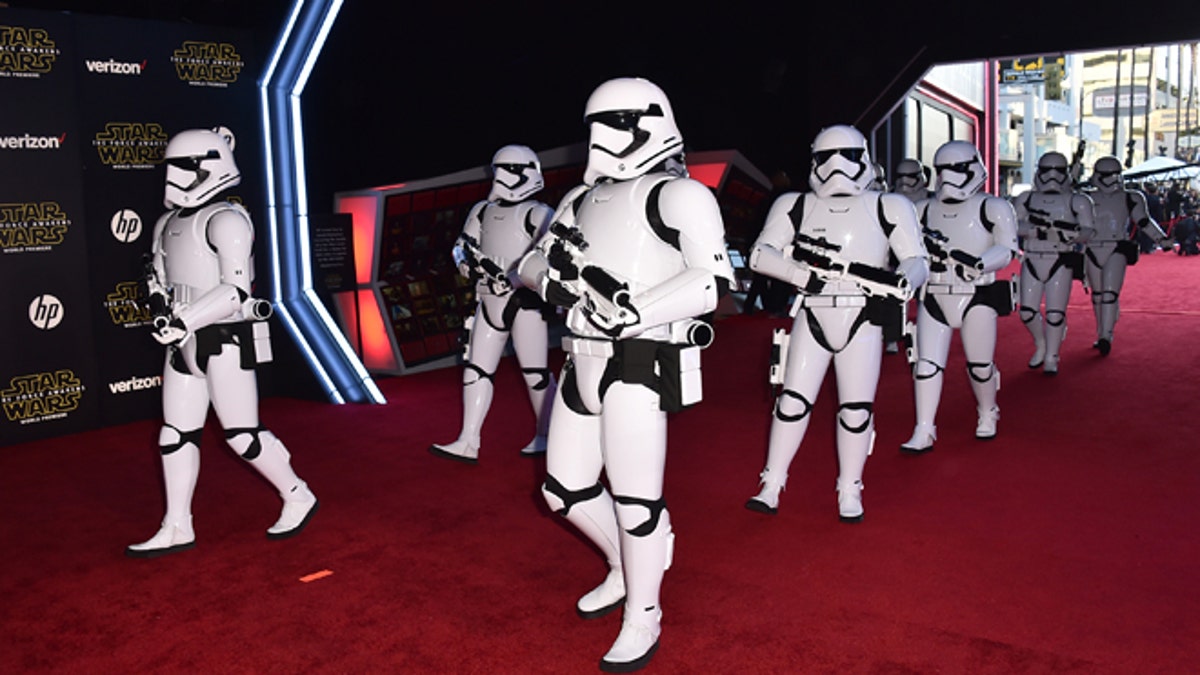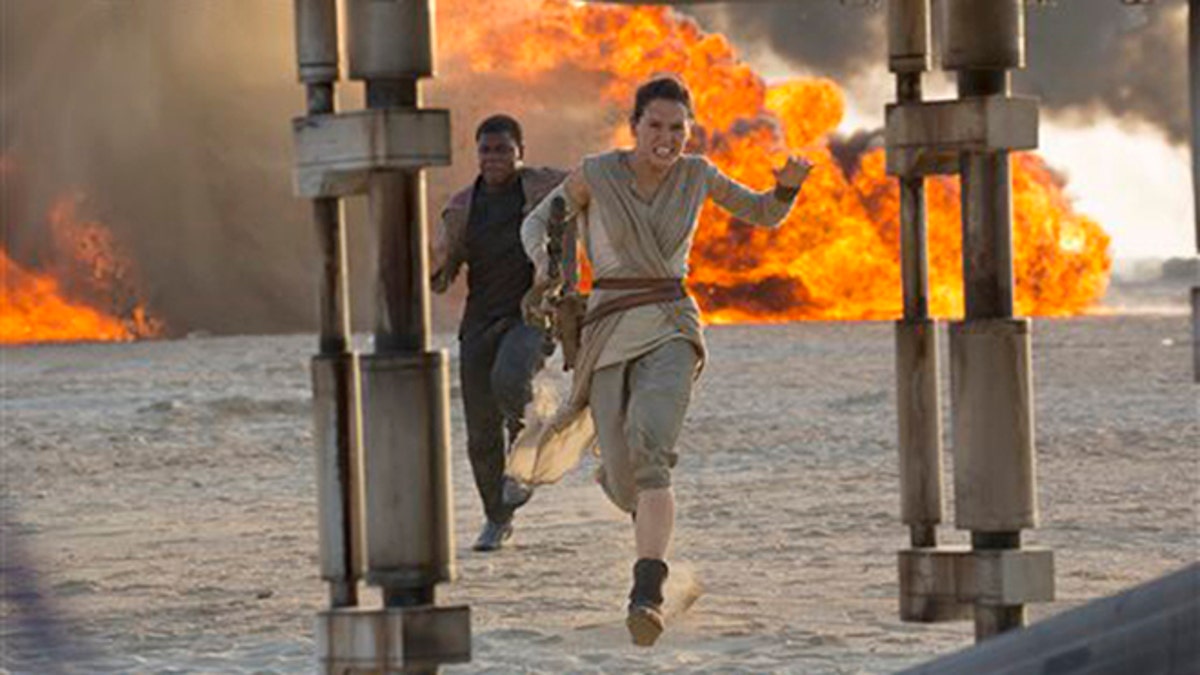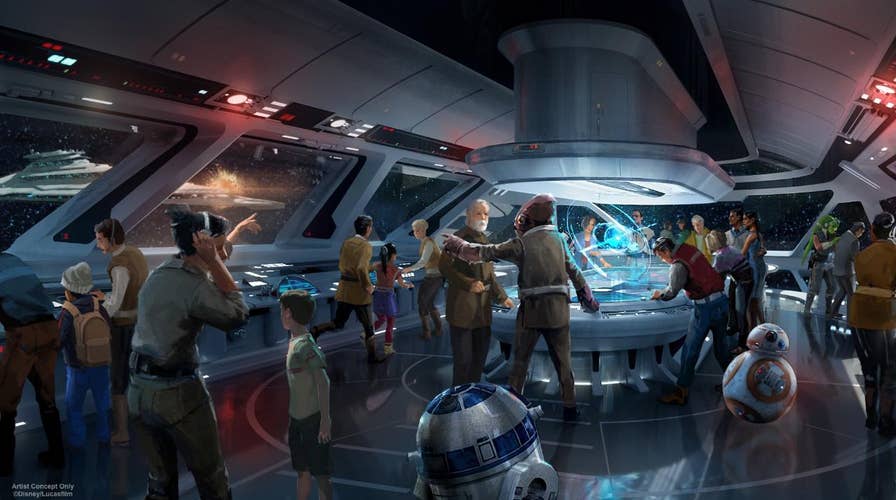'Star Wars'-themed hotel coming to Disney World
Disney Parks and Resorts announced during the D23 Expo a new immersive 'Star Wars'-themed hotel along with the name of their Disney World land, 'Star Wars: Galaxy's Edge'
Star Wars is a guaranteed money-making film franchise for Disney. Like an enormous Star Destroyer looming over every other film or franchise it’s up against on any opening day, it’s as close to a sure thing you can get in entertainment investments. The question here, however – with Disney, and more specifically with Kathleen Kennedy’s steering and the evolving face of film, audiences and technology – is, should we still care?
Since George Lucas handed off his cultural behemoth in 2012, Disney has sought to expand its merchandising capabilities to the far reaches of the universe, as well as expanding the commercial brand to include entire theme parks based on the films and even hotel guest experiences not unlike that of "Westworld," where guests participate in their own “Star Wars Story.”

In this image released by Disney, a scene is shown from the upcoming film, "Star Wars: The Force Awakens," expected in theaters on Dec. 18, 2015. (AP Photo/LucasFilm, Disney) (AP)
But the tree is only as strong as its roots, the roots being the films both Disney has acquired and the films Disney produces.

Dec. 14, 2015: Stormtroopers march on the red carpet at the world premiere of "Star Wars: The Force Awakens" at the TCL Chinese Theatre in Los Angeles. (Jordan Strauss/Invision/AP)
One would think the legacy of the original trilogy is intact and untouchable. But a series of creative controversies of late have plagued the franchise as it attempts to not only branch off with a new trilogy, but conjure up a commercialized nostalgia by milking whatever they can with spin-off films of older beloved characters, as we saw with “Rogue One” last year. In addition to Episode VIII (“The Last Jedi,” due out this December) and IX (due out some time in 2019), Disney has a planned launch of films featuring Han Solo’s origin, a Boba Fett film, and the possibility of an Obi-Wan Kenobi film (could have sworn we already had three of those). Is anybody out there really demanding to see a Han Solo origin film? Or another Ben Kenobi story? Does it matter?
But a series of creative differences have since plagued the franchise with filmmakers clashing with Kennedy. “Rogue One’s” Gareth Edwards fell out of favor and Tony Gillroy was called in to do reshoots and story tweaking. Phil Lord and Christopher Miller, who helmed “The Lego Movie,” were brought on board to write and direct the Han Solo origin film (not starring Harrison Ford, by the way, but younger lookalike actor Alden Ehrenreich) and were released about a third of the way into shooting due to their improvisational and humorous style – which was cause for concern with Kennedy and the higher-ups at Imperial command. Kennedy friend and reliable old scribe Ron Howard was brought on to oversee the rest of production. Director Josh Trank was hired and promptly fired from a project thought to be ‘Boba Fett’ and just recently, “Jurassic World” director Colin Trevorrow was released from directing and scriptwriting duties for the anticipated Episode IX, the final film of the main trilogy, due to creative differences.

This photo provided by Disney/Lucasfilm shows Daisy Ridley, right, as Rey, and John Boyega as Finn, in a scene from the film, "Star Wars: The Force Awakens," directed by J.J. Abrams. The movie opens in U.S. theaters on Friday, Dec. 18, 2015. (David James/Disney/Lucasfilm via AP) (AP)
Smart, introspective Sci-Fi (which Star Wars is and can be) is a thriving genre at the moment. There are several working directors who seem primed for a Star Wars film. “Wonder Woman’s” Patty Jenkins seems ideal. There’s also “Arrival” and “Blade Runner 2049”’s Denis Villeneuve.
Ava DuVernay or Ryan Coolger (already under Disney contract with Marvel for “Black Panther”) would have been intriguing choices. “District 9”’s Neill Blomkamp or “Dark City’s” Alex Proyas have proven they understand conceptual science fiction, as has Kathryn Bigelow and Robert Zemeckis.
But all the fan dreaming of a perfect, smart and new take on Star Wars went out the window when it was announced early Monday morning that J.J. Abrams, who helmed “The Force Awakens,” a soft reboot of the original film, would be returning to direct Episode IX. It’s a safe bet, if not a particularly bold decision. And that’s what Disney is going for. Disney’s message so far has been simple: Don’t rock the multibillion dollar boat.
But Disney’s direction here is a complete antithesis of what Star Wars represents to begin with. “Star Wars, A New Hope” (the very first Star Wars film, released in 1977) as an original film would never have been made if not for daring risks and bold directions taken by George Lucas or the studio that agreed to distribute it. “The Empire Strikes Back,” perhaps the greatest film sequel in history, took the groundwork of the original and flipped it on the ear of conventional wisdom. Lucas turned over an extraordinary amount of creative control to Irvin Kershner and screenwriters Lawrence Kasdan and Leigh Brackett. “Return of the Jedi,” while not as revered as its predecessors, was a satisfying conclusion to the trilogy with its own iconography in film culture.
But it wasn’t just the original trilogy standing on its own that allowed Star Wars to thrive for over 30 years. Constant successful merchandising was part of it, of course, but it was also George Lucas opening his universe to expansion by independent novella authors, allowing them to create new stories for Luke, Han and Leia, as well as other characters.
This decision allowed the mythology itself to thrive. Series like “Heir to the Empire,” “Bloodline,” and “Shadows of the Empire” went on to somewhat commercial success without tarnishing the nostalgia of the original films and are largely responsible for the expanded mythology of Star Wars beyond the films, today.
Disney appears to be doing the exact opposite and seems content with cashing in on the back of Darth Vader’s lightsaber for the foreseeable future. Instead of opening the universe up to new storytellers with fearless visions and ideas they are clamping down.
Disney appears to be doing the exact opposite and seems content with cashing in on the back of Darth Vader’s lightsaber for the foreseeable future. Instead of opening the universe up to new storytellers with fearless visions and ideas they are clamping down.
When Disney assumed control of Star Wars, the creative decision was made by Abrams that the only official canon that would be followed from there on out would be the films – even if, by all appearances, his own story-map for the new trilogy seems to be following groundwork laid by authors of the expanded universe.
Another factor in all of this is the audience. To resist needless nostalgia means capturing the spirit of the time the original films were released. This is not that time. The era of the blockbuster has gone the way of the Jedi. Most franchise films today come built-in with a sequel (or three) and Star Wars as it exists is not a particularly novel concept anymore (“Harry Potter,” “Hunger Games,” “The Matrix,” “Twilight,” “Lord of The Rings” are all examples of this).
Star Wars isn’t new anymore. Keeping it interesting will require risks. Abrams deserves all the credit in the world for fixing what many fans thought the Lucas prequels broke. But the question is just how much farther would he be allowed to take the final episode. It already seems we have our answer
Disney and Kennedy seem content to keep everything they believe to be right with Star Wars (fan service and nostalgia) while moving away from everything that could take it into the future. This should cause a disturbance in the force for any fans anxious for something new.

